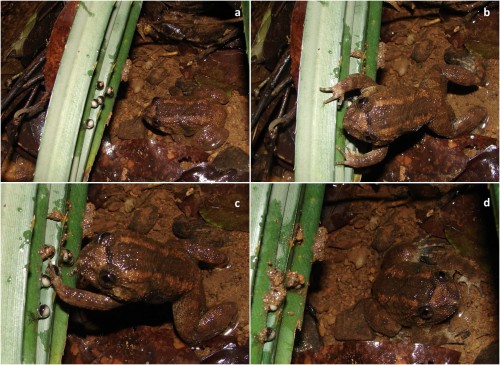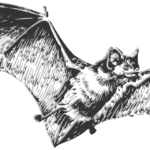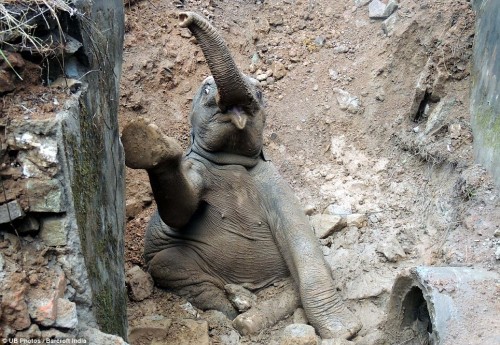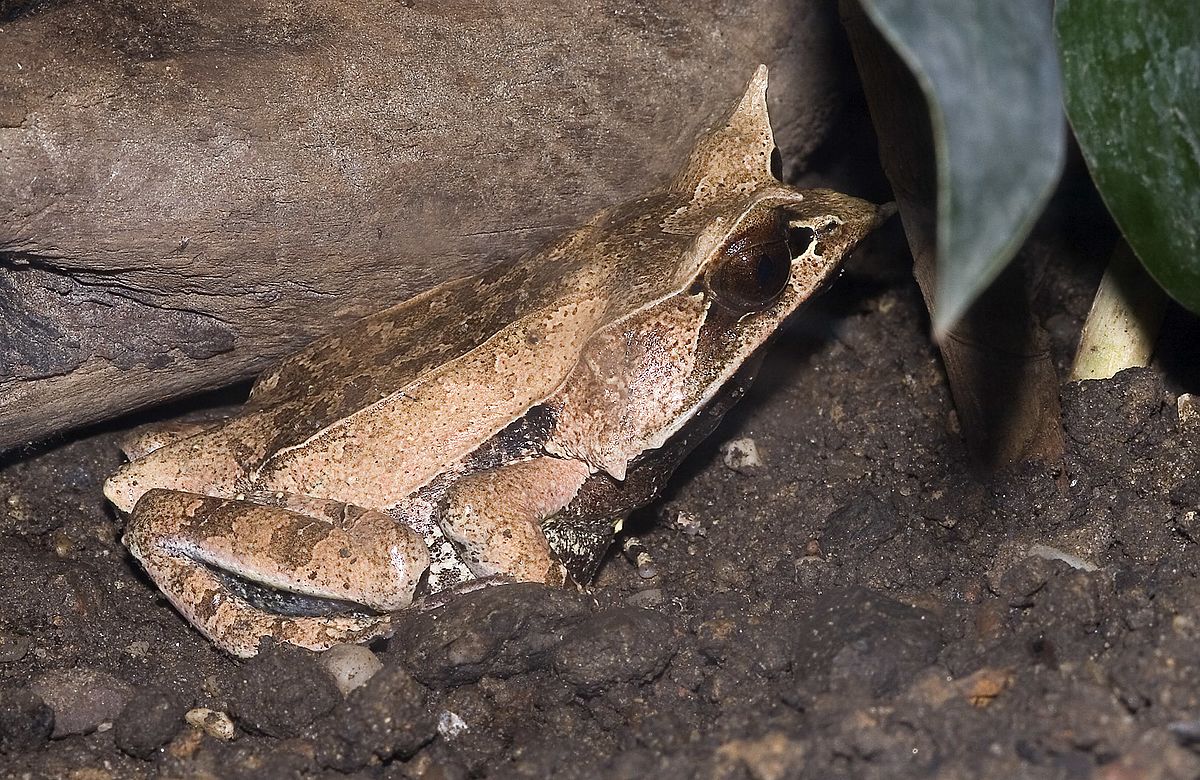While male parenting may be a recent development for human civilizations in general, the animal kingdom is replete with examples of such unusual parenting behavior. One such example would be that of a newly discovered frog species, the male members of which plaster the eggs laid by their mates with swamp mud in order to camouflage them as well as to prevent them from drying out.

The newly discovered species, which has been named Nyctibatrachus kumbara, is found in the rich biodiversity of the Western Ghats of India. The researchers who made the amazing discovery believe that while such unusual parenting behavior is usually found in birds such as sparrows, this is the first instance of male parenting to be noted among frogs.
The species was discovered in the Kathalekan area near Jog falls on the border of Shimoga and Uttara Kannada districts by a joint team of scientists from Indian Institute of Science (IISc) and Ashoka Trust for Research in Ecology and the Environment (ATREE) after multiple expeditions. The area is an ideal habitat for frogs as it contains Myristica swamps that have a special kind of vegetation as well as many perennial streams that cross overhanging roots and small rocks.
The Amphibian Potter
The Nyctibatrachus kumbara is a nocturnal frog from the genus Nyctibatrachus. Interestingly, the said genus is noted for having quite a few ancient frog species that are endemic to the Western Ghats. The newly discovered subspecies happens to be the 27th member of the genus.
K. V. Gururaj, the lead expert of the discovery and IISc research scientist said,
“The eggs are laid on the banks of water bodies, after which the male frogs apply mud on to the eggs with so much finesse that we decided to call the frog species kumbara, which in Kannada means potter.”
“The mud-covering behavior of the frogs indicates the need of such a habitat where the species can survive and increase in numbers. Therefore, any significant changes to their natural habitats will eventually result in local extinction of the species,” noted Gururaja.
Speaking about the same discovery, K. P. Dinesh, another member of the study group said,
“In all other frog species, it is the female who plays the proactive role in protecting eggs, but this is a unique trend where the female leaves the place right after laying eggs and the male protects them. It does it with its limbs, just like a potter at work. Hence the name.”
Some of the distinctive features of the Nyctibatrachus kumbara are as follows:
- During courtship, the males call out to their mates by making a very distinct croak that sounds like a ‘tok’ or a ‘tok-tok’
- The hatching of the eggs starts immediately after the mating, and the male hangs around during the entire duration of the hatching
- The females stand on their upper limbs while laying eggs, and after they lay the eggs they immediately move away
- The males, who are on the spot, gather mud from the stream and place in on the eggs in order to camouflage as well as prevent them from drying ups
While the species is currently not at risk, experts say there could be a reason for concern.
“A lot of these swamps are under threat. However, hopefully this discovery will draw attention for conserving these unique habitats in the Western Ghats as it points at the fact that the Western Ghats haven’t been fully explored yet,” said ATREE scientist G. Ravikanth, who along with fellow scientist H. Priti, carried out the DNA analysis that led to the discover of the new species.
More Related Stories,
14 Species of Unusual Dancing Frogs Discovered in Western Ghats
The Song of the Indian Purple Frog
Rare Butterfly Seen after 74 Years
Image courtesy Amphibians









One thought on “New Species Discovery: A Doting Frog Father”